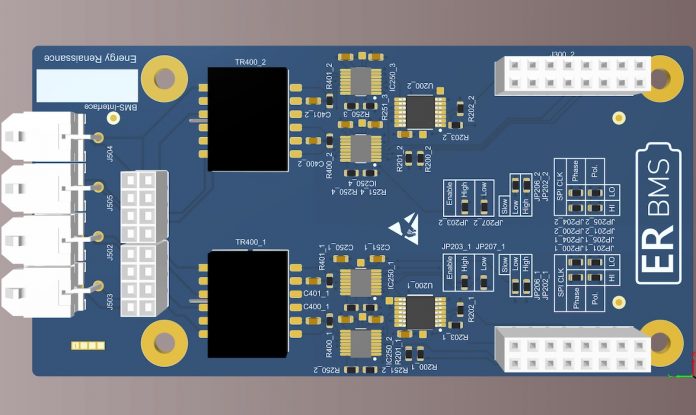
Australian lithium-ion battery manufacturer Energy Renaissance will develop a defence-grade cybersecure Battery Management System (BMS) for its superStorage family of batteries as part of a $1.46 million BMS project jointly funded by Energy Renaissance, CSIRO and the Innovative Manufacturing CRC (IMCRC).
Communicating through an inverter, the BMS will monitor and report on the battery’s usage, lifespan and faults through a mobile network to Energy Renaissance and their customers.
Brian Craighead, Technology and Development Director of Energy Renaissance said the system will enable secure real-time data, analytics and remote management to drive down the risk of battery failure and operating costs for grid-scale energy storage users.
“The collaboration between Energy Renaissance, CSIRO, and IMCRC will promote an Australian Battery Management System instead of relying on an overseas technology platform,” Mr Craighead noted.
“Working together with CSIRO will ensure we can create a world-class defence-grade cybersecure Battery Management System that is fully developed and managed in Australia for critical energy storage infrastructures.”
“Software designed and developed in Australia has a strong global reputation and we’ve built a history and track record as an industry.
“Through this project, we will demonstrate the advantage that Australian intellectual property can bring to a highly competitive energy storage market where a superior Battery Management System is critical for the operating efficiency of a battery.”
Dr Adam Best, Principal Research Scientist at CSIRO said the agency was delighted to be working with Energy Renaissance to develop a BMS that is the ‘nerve centre’ of a battery.
“Our partnership with Energy Renaissance validates CSIRO’s capabilities to collaborate, train and transfer skills for the advanced manufacturing of batteries,” Dr Best added.
David Chuter, CEO and Managing Director at IMCRC sees the research as a catalyst for further establishing an Australian battery manufacturing sector.
“The growing interest in renewable energy and thus demand for lithium-ion batteries provide a great opportunity for Australia,” Mr Chuter said.
“Through accessing local knowledge and expertise, this project will demonstrate how we can utilise Industry 4.0 technologies and principles to establish a viable Australian battery manufacturing sector for the benefit of all Australians, and as a national manufacturing priority.
“The commitment from all involved in this project will help position and strengthen the value and influence of Australia’s role as a strategic partner in the global lithium-ion battery value chain.”




















